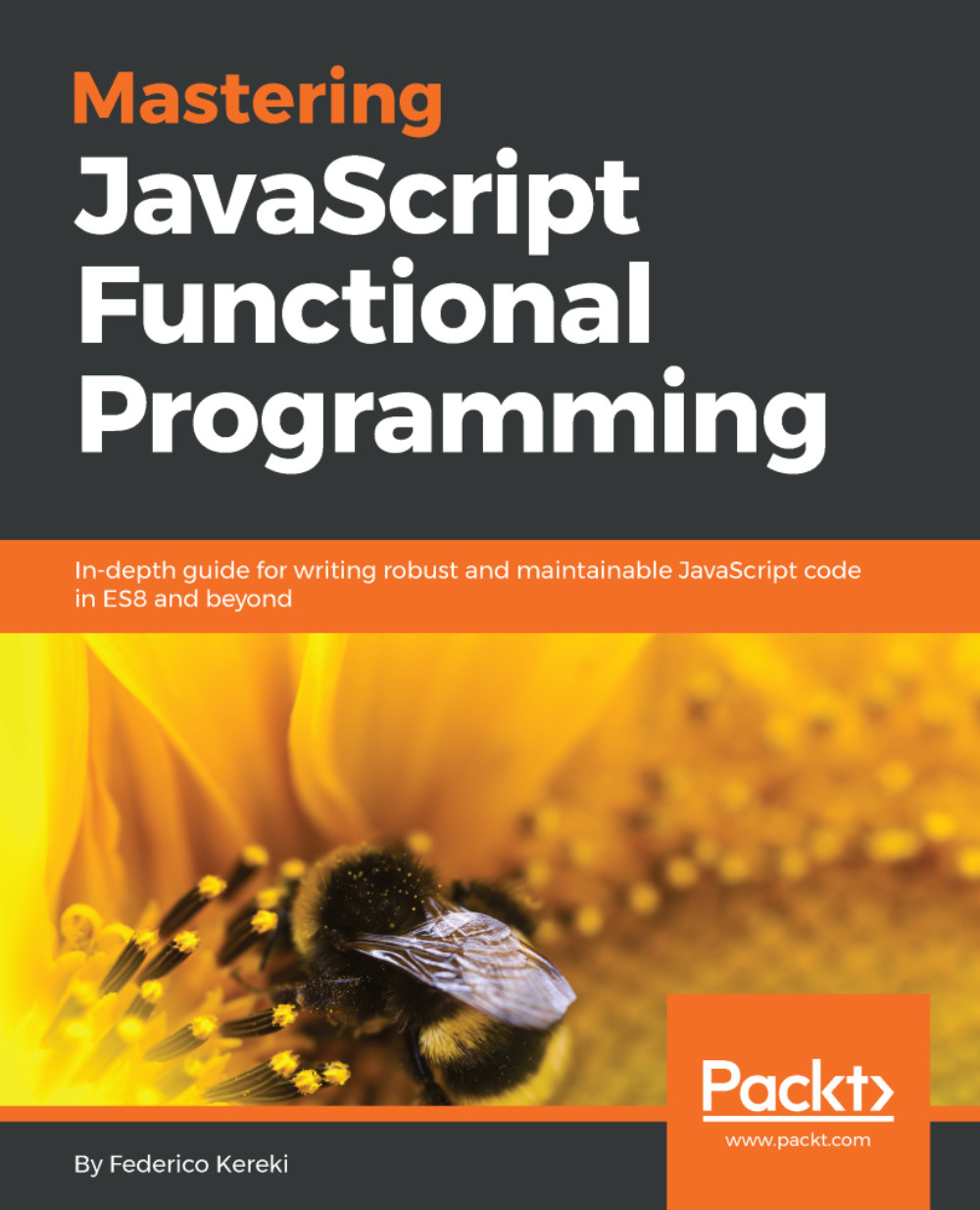Overview of this book
Functional programming is a programming paradigm for developing software using functions. Learning to use functional programming is a good way to write more concise code, with greater concurrency and performance. The JavaScript language is particularly suited to functional programming.
This book provides comprehensive coverage of the major topics in functional programming with JavaScript to produce shorter, clearer, and testable programs.
You’ll delve into functional programming; including writing and testing pure functions, reducing side-effects, and other features to make your applications functional in nature.
Specifically, we’ll explore techniques to simplify coding, apply recursion for loopless coding, learn ways to achieve immutability, implement design patterns, and work with data types.
By the end of this book, you’ll have developed the JavaScript skills you need to program functional applications with confidence.



 Free Chapter
Free Chapter
